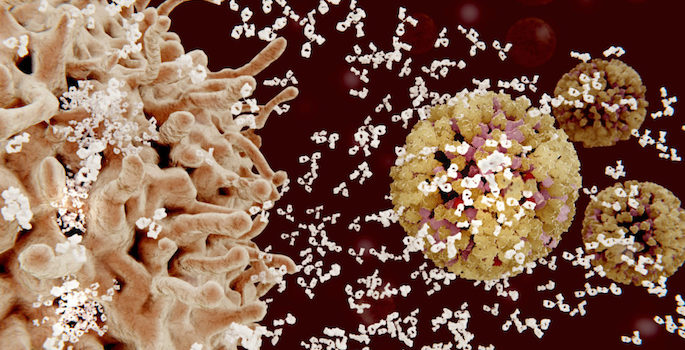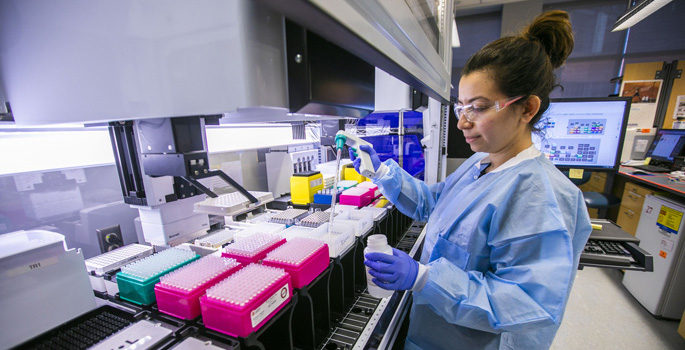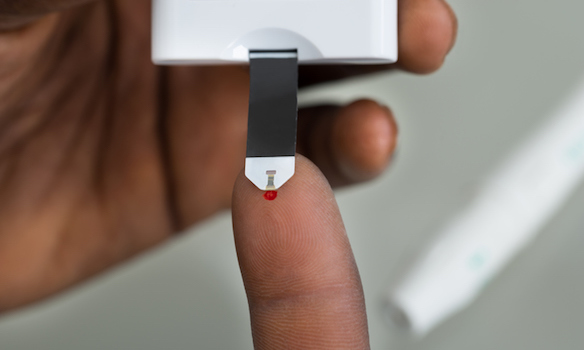Health And Medicine
-

Study finds patient messages help predict medication adherence
Zhijun Yin and colleagues have found that breast cancer patients who message their doctors about certain topics are more likely to discontinue hormone therapy than others--which enables doctors to better predict which patients are at risk of stopping their treatment early. Read MoreJan 31, 2019
-

Research bolsters thyroid function, atrial fibrillation link
Jonathan Mosley and colleagues have found that genetic varations in thyroid function can increase the risk of an irregular heart rhythm. Read MoreJan 31, 2019
-

Study explores genetic risk for suicide attempt
While there is no single culprit, genetic factors account for a small but significant percentage of an individual's suicide risk. Read MoreJan 31, 2019
-

Designing antibodies to fight the flu
James Crowe Jr. and colleagues have developed a new computational method that may allow researchers to develop flu antibodies that can protect against more strains of the disease. Read MoreJan 31, 2019
-

In utero antibiotics and obesity risk
Exposure to antibiotics during pregnancy does not raise the risk of obesity in children. Read MoreJan 31, 2019
-

Destructive ‘telegrams’ in asthma
Heather Pua and colleagues have identified the source of cellular signals that may play a role in triggering an asthma attack. Read MoreJan 31, 2019
-

Long-term unemployment linked to increase in babies born with drug withdrawal
Babies born with neonatal abstinence syndrome are more likely to be delivered in regions of the U.S. with high rates of long-term unemployment and lower levels of mental health services. Read MoreJan 30, 2019
-

Major grant to bolster research on inflammation-related cancers
Cancer Research UK has awarded a 20-million-pound grant (about $26 million U.S.) to a team of international investigators, including Vanderbilt’s James Goldenring, Eunyoung Choi and Jimin Min to study inflammation-related cancers. Read MoreJan 25, 2019
-

Study to track teen development in those with, without autism
A new Vanderbilt study examining stress in teens with and without autism spectrum disorder is now enrolling participants, thanks to a $2.3 million, five-year grant from the National Institute of Mental Health. Read MoreJan 25, 2019
-

VUMC scientists ‘sprint’ to find anti-Zika antibodies
Scientists at Vanderbilt University Medical Center and colleagues in Boston, Seattle and St. Louis are racing to develop — in a mere 90 days — a protective antibody-based treatment that can stop the spread of the Zika virus. Read MoreJan 25, 2019
-

Study finds unique form of chronic sinusitis in older patients
Older patients with a diagnosis of chronic sinusitis have a unique inflammatory signature that may render them less responsive to steroid treatment, according to new research led by Justin Turner. Read MoreJan 18, 2019
-

DNA’s on/off switch
Walter Chazin and colleagues have identified how a chemical "switch" in DNA primase, an enzyme essential to the replication of our genomes, works in order to hand off genetic information to the next enzyme. Read MoreJan 18, 2019
-

Signals from the “conveyor belt”
Carlos Lopez, Tina Iverson and Vsevolod Gurevich propose that a conveyer belt best describes the mechanism by which cellular signals are handed off from enzyme to enzyme in the brain. Read MoreJan 18, 2019
-

Building a pancreas
Ken Lau and Guoqiang Gu have identified a critical biomarker in determining how a pancreatic progenitor cell will develop. Read MoreJan 17, 2019
-

Study points to alternate therapy for rare form of diabetes
An unexpected finding by Rachana Haliyur during the cellular analysis of human pancreatic tissue has revealed new information about a rare type of diabetes and underscores the importance of genetic testing for some individuals diagnosed with type 1 diabetes. Read MoreJan 17, 2019
-

Research explores link between stem cell transplant, diabetes
Brian Engelhardt is studying why as many as 50 percent of stem cell transplant recipients develop diabetes. Read MoreJan 17, 2019
-

Pain relievers a risk for C. diff?
David Aronoff and colleagues report an increased risk of the serious gastrointestinal infection C. diff following the use of NSAID pain relievers. Read MoreJan 17, 2019
-

Findings on eye-signal blending re-examine Nobel-winning research
Knowing which neurons are involved in the eye signal blending process also opens the door to targeted brain therapies that reach well beyond eye patches. Read MoreJan 17, 2019
-

Team finds how error and reward signals are organized within cerebral cortex
Psychiatrists diagnose people with schizophrenia, ADHD, bipolar disorder and other mental illnesses by spending time with them, looking for the particular behavior symptoms of each. What follows can be a hit-or-miss series of medications and dosages until disruptive behaviors go away. By deciphering the circuitry of the medial frontal cortex… Read MoreJan 14, 2019
-

Study identifies novel genetic factors for colorectal cancer risk
A large-scale study conducted among East Asians and led by Vanderbilt researchers has identified multiple, previously unknown genetic risk factors for colorectal cancer. Read MoreJan 10, 2019